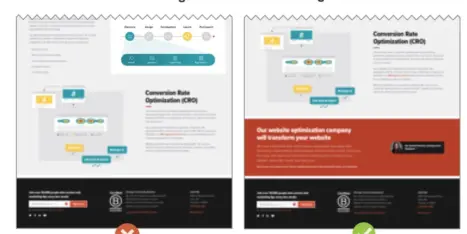I get this question about once a month. It’s typically from a website owner who registered some new domain names or a marketing manager who wants to reach a new audience or promote a separate product or service.
Usually, I recommend against it. Having another website means more work: more time spent managing and promoting. Think of it this way: should I live in two houses? Sounds nice to have two places, but it’s going to take more effort to make each feel like a home.
Making a new section on your website may take only a few hours, and as long as you have a content management system, it might cost nothing. But there are times when it makes sense to have a separate website.
If you’ve ever asked this question, first consider the downsides to promoting and managing a separate site:
- Web Development Costs: Yes, I’d love to have Orbit build a new website for every domain name owned by every client, but I can’t recommend this in good conscience. Building great sites takes a real investment of time and money!
- Management Time: Hopefully, both sites are easy to update. But another site will need more content, which means more writing time and content development costs.
- Search Engine Ranking: The number and quality of incoming links is probably the most important factor in search engine rankings. It’s better to have one site with 100 links than two sites with 50 each. In other words, it’s better to have one site rank on page one in Google than have two sites on page two.
Keeping these factors in mind, the pros had better outweigh the cons.
So when does a separate site make sense?
Of course, there are cases when you really should have another site. Here are my guidelines:
Ask yourself these two questions:
1. Would the new site have a different audience?
2. Would the new site have different goals?
If the answer to only one of these questions was yes, I don’t recommend a new site. It’s probably best just to have a separate section on your existing site. Only consider building a separate site if you answered yes to both of these questions.
Examples:
- Widget Co. sells widgets to businesses. Now they’re thinking of selling widgets directly to consumers. In other words, same goal (sell widgets), different audience (consumers).
Yes + No = Separate Section
- Tony’s Unicorns (remember Tony?) is expanding, and now they’re going to start servicing griffins. It’s a different goal (service griffins) but for the same audience (owners of mythical creatures).
No + Yes = Separate Section
- Glenda does event photography for corporations. But people keep asking her to plan weddings and she’s going to promote these services online. It’s a different goal (promote planning services) and a different audience (happy couples).
Yes + Yes = Separate Website
What about all these domains I have?
If you really want to take advantage of those domains, you can always redirect them to your main site. This doesn’t have a search engine benefit (it’s actually not a new incoming link), but it might make you feel better for having spent the money! Besides, there are other reasons to own domains, such as defense against competition, speculative investment and conversation at the bar on Thursdays.
Bottom Line
Next time you think about website design, pause and ask yourself those two questions. You might reconsider. Deciding not to make another site may save you thousands of dollars and hundreds of hours. But you may also find that a separate site is a great idea!




